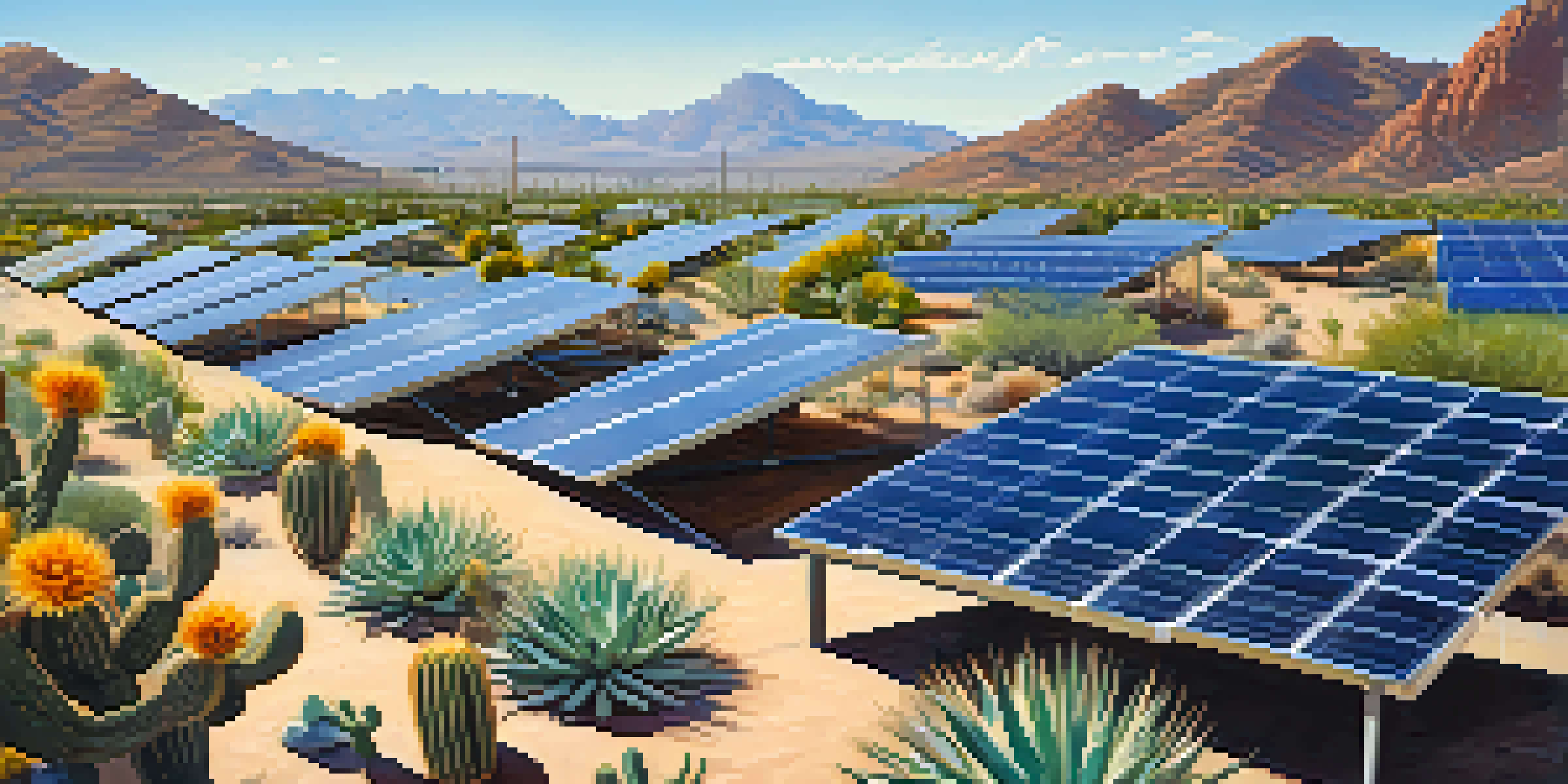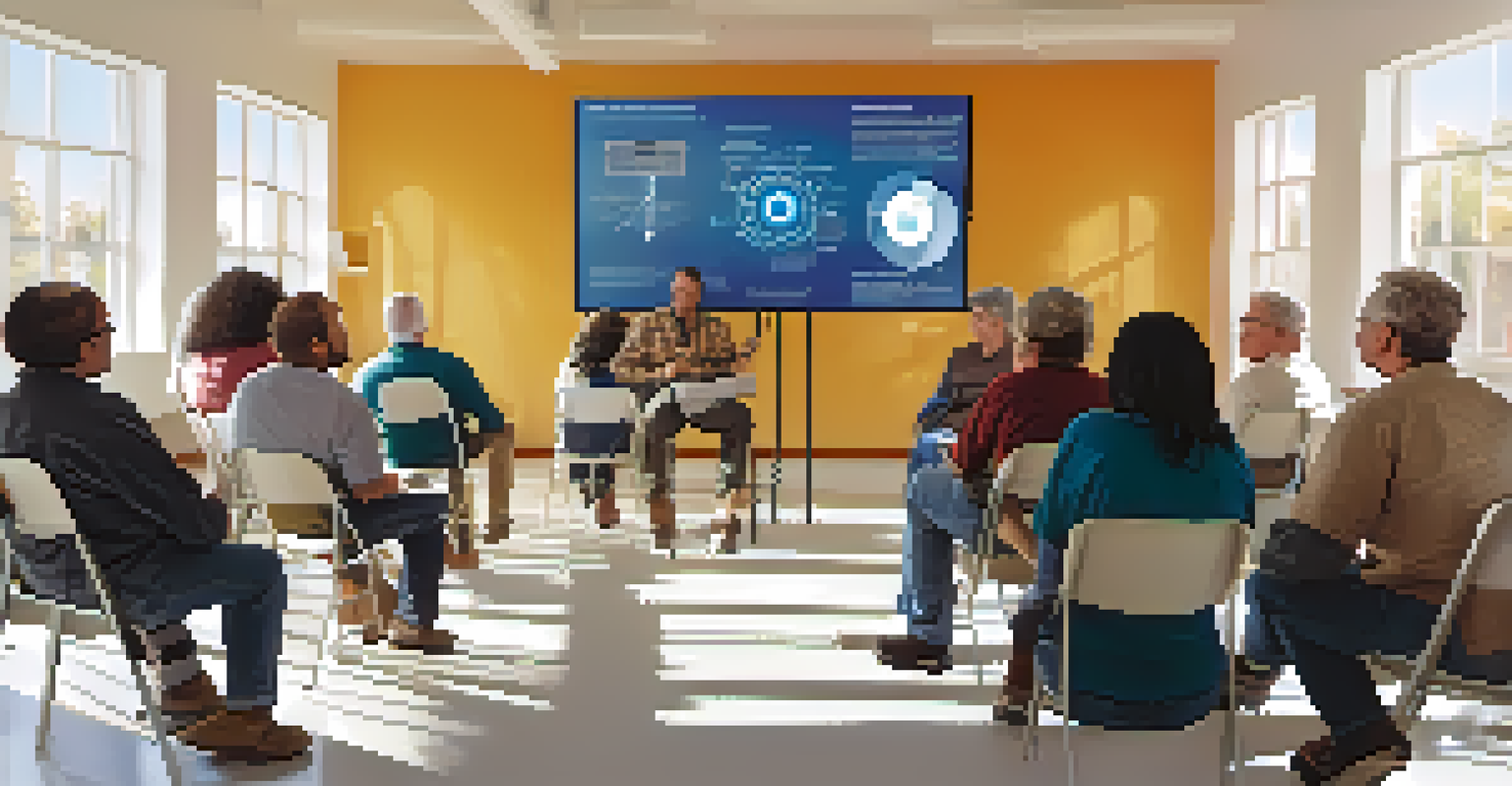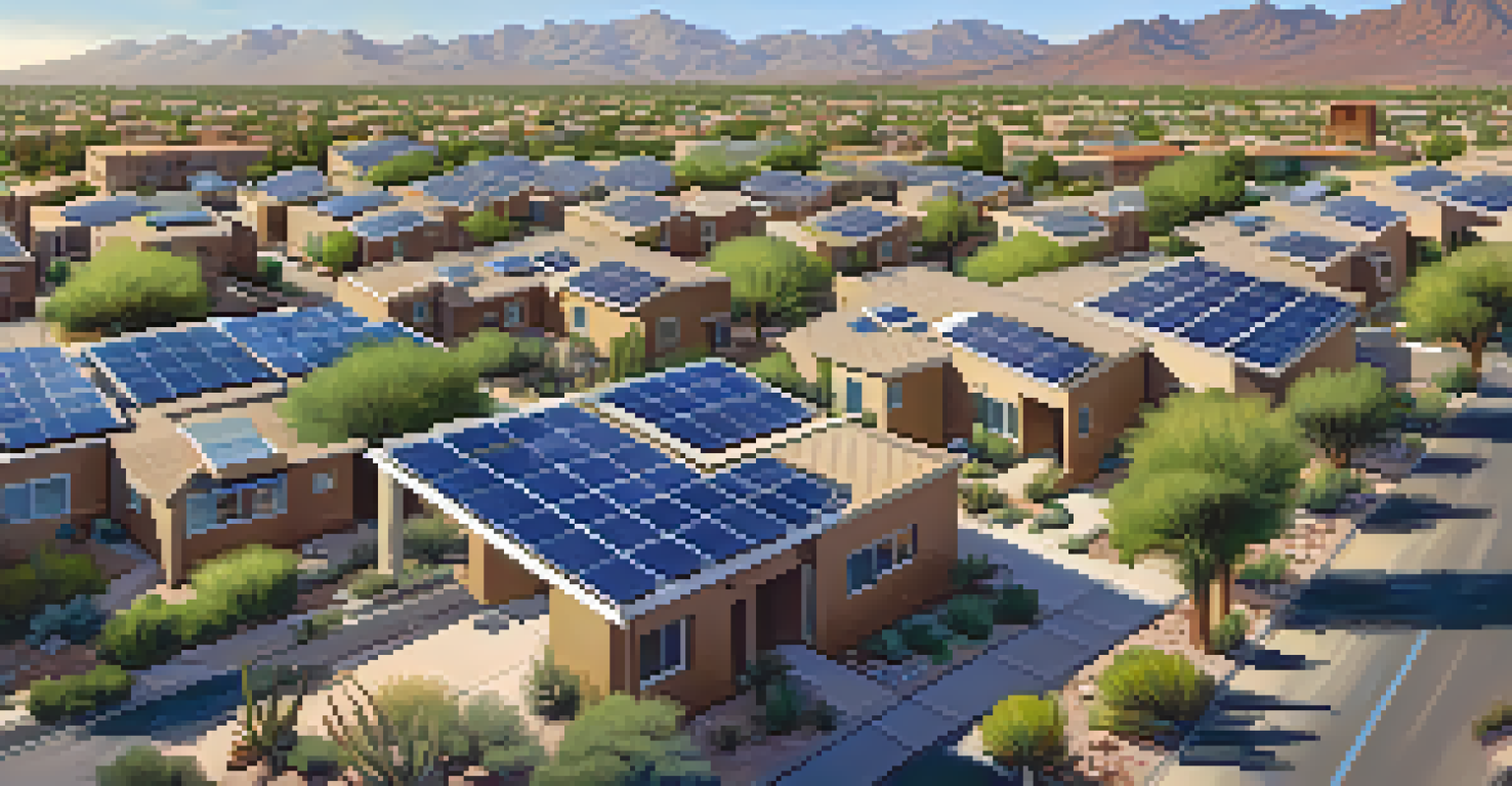Community Solar Projects in Tucson: A Research Perspective

Understanding Community Solar Projects and Their Benefits
Community solar projects allow multiple participants to invest in and benefit from a shared solar energy system. This model is particularly advantageous for those who may not have access to rooftop solar due to financial constraints or property limitations. By pooling resources, communities can harness renewable energy while reducing their carbon footprint and energy costs.
The sun is the most important source of renewable energy. It is a free and abundant resource that can be harnessed for the benefit of all.
In Tucson, these projects are gaining traction as residents seek sustainable energy solutions. The benefits extend beyond individual savings; communities that invest in solar collectively can bolster local economies and create job opportunities in the renewable energy sector. This collaborative approach not only enhances energy independence but also fosters a sense of community among participants.
Moreover, community solar projects can serve as educational platforms, raising awareness about the importance of renewable energy. By participating in these initiatives, residents become more informed about energy consumption and sustainability practices, further promoting a culture of environmental responsibility within Tucson.
The Current Landscape of Community Solar in Tucson
Tucson's climate is ideally suited for solar energy, with abundant sunshine year-round. This natural advantage has led to the development of several community solar projects throughout the city. Local organizations, utility companies, and government entities are increasingly collaborating to expand these initiatives, making solar power more accessible to all residents.

Currently, Tucson Electric Power (TEP) plays a significant role in facilitating community solar projects, offering programs that allow customers to subscribe to shared solar facilities. This arrangement enables participants to receive credits on their electricity bills, which can lead to substantial savings over time. The growth of these programs has sparked interest in renewable energy, encouraging more residents to consider their options.
Community Solar Boosts Local Economy
Community solar projects not only provide savings for participants but also create job opportunities and stimulate local economic growth.
As interest in sustainability rises, Tucson's community solar landscape continues to evolve. New projects are being proposed, and existing ones are constantly being assessed for improvements. This dynamic environment highlights the city's commitment to fostering renewable energy and reducing reliance on fossil fuels.
Key Stakeholders in Tucson's Community Solar Projects
Community solar projects involve various stakeholders, including local governments, non-profit organizations, and private developers. Each group plays a vital role in ensuring that these initiatives are successful and beneficial for the community. For example, non-profits may lead outreach efforts to educate residents about the advantages of participating in these solar programs.
Sustainability is no longer about doing less harm. It's about doing more good.
Local governments are crucial in establishing policies that support the growth of community solar. By creating incentives and streamlining regulations, they can encourage more projects to take root. Additionally, partnerships between public and private entities often lead to innovative solutions for overcoming common barriers, such as financing and land use.
Developers, on the other hand, bring the technical expertise necessary to design and implement solar projects. Their knowledge of solar technology and project management ensures that installations are completed efficiently and effectively. Together, these stakeholders create a robust ecosystem that promotes the successful deployment of community solar in Tucson.
Challenges Facing Community Solar Initiatives in Tucson
While the potential for community solar projects in Tucson is significant, several challenges persist. One major hurdle is securing financing, as initial costs for solar installations can be substantial. Even with the promise of long-term savings, many residents may feel hesitant to invest without clear financial incentives or support.
Another issue is the regulatory landscape, which can be complex and cumbersome. Navigating local and state policies can deter potential participants from joining community solar initiatives. Simplifying these regulations and providing clear guidance could help alleviate some concerns and encourage broader participation.
Tucson's Solar Potential is Strong
With its abundant sunshine, Tucson is well-positioned to expand community solar initiatives, making renewable energy more accessible to residents.
Finally, raising awareness and understanding among residents is essential. Many people may not be aware of community solar options or how they work. Education and outreach efforts must be prioritized to ensure that all Tucson residents can make informed decisions about their energy choices.
Successful Case Studies of Community Solar in Tucson
Tucson has seen several successful community solar projects that serve as shining examples for future initiatives. One notable project is the Tucson Electric Power’s Solar Partners program, which allows residents to subscribe to shared solar energy generated at a nearby facility. This program has enabled many residents to benefit from clean energy without the need for individual solar installations.
Another example is the collaboration between local non-profits and community organizations to establish solar gardens. These gardens provide a space for residents to come together and invest in solar energy collectively. The sense of community fostered by these projects often leads to stronger local ties and increased engagement in sustainability efforts.
These success stories demonstrate that community solar can be both viable and beneficial for Tucson. They highlight the importance of collaboration and innovation in overcoming challenges, paving the way for future projects that can further enhance the city’s commitment to renewable energy.
The Future of Community Solar in Tucson
Looking ahead, the future of community solar in Tucson appears promising. As technology continues to advance and costs decrease, more residents may find solar energy to be an appealing option. Additionally, increased awareness and education about the benefits of community solar will likely drive more participation in these initiatives.
Local governments and utility companies are also expected to continue their support for community solar projects. By implementing more favorable policies and incentives, they can encourage further investments and growth in renewable energy. This collaborative spirit will be essential in addressing the energy needs of Tucson while promoting sustainability.
Participation Can Drive Sustainability
Residents can engage in community solar projects through local initiatives, fostering a culture of environmental responsibility and collaboration.
Moreover, as climate change becomes an ever-pressing issue, the urgency for renewable energy solutions will only grow. Tucson's community solar initiatives will play a vital role in meeting these challenges head-on, positioning the city as a leader in the transition to a sustainable energy future.
Getting Involved: How Residents Can Participate
Residents interested in participating in community solar projects have several options available to them. First, they can research local initiatives, such as those offered by Tucson Electric Power, and determine which programs align with their needs and values. Websites and community forums often provide valuable information on the latest projects and available subscriptions.
Joining local organizations that advocate for renewable energy can also be beneficial. These groups often host events, workshops, and informational sessions that help residents learn more about community solar and its benefits. Engaging with like-minded individuals can also foster a sense of camaraderie and shared purpose.

Lastly, residents can consider advocating for the expansion of community solar initiatives in Tucson. By voicing their support to local leaders and participating in public discussions, they can contribute to the ongoing dialogue about renewable energy in their community. Every voice counts in shaping a brighter, more sustainable future for Tucson.